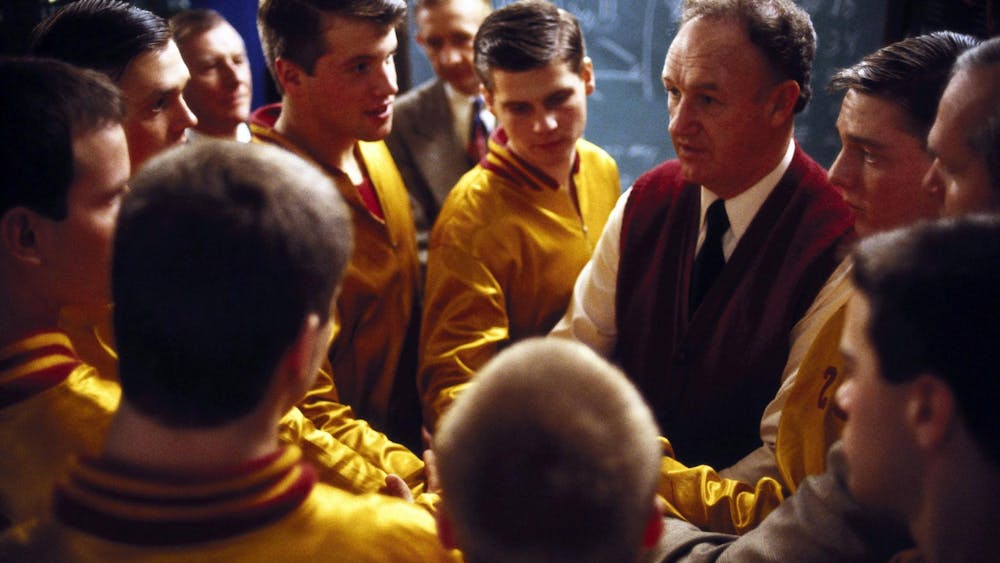L’Oréal is the most searched cosmetics company in the world. It was named the #1 beauty brand in 2023. The company, which makes all kinds of beauty products from skin care, to hair care and make-up, made $11.8 billion in revenue during just the first quarter of 2023.
If that’s not enough to prove its magnitude, Netflix released a docuseries on the beauty empire this month titled “The Billionaire, The Butler, and The Boyfriend,” or, in French, “Affaire Bettencourt: scandale chez la femme la plus riche du monde.”
Although the company’s present and future are bright, there is something to say about their troubling past. L’Oréal should be held accountable for its scandals, not by consumers boycotting because they have since changed, but by releasing a statement apologizing and affirming that this is no longer them.
The more than a century-old company has made its founders Liliane and Françoise Bettencourt the richest women in the world. The company even earned a title as one of the world’s most ethical companies in 2023. But despite L’Oréal’s success, the path to get here hasn’t been pretty. Founder of the empire, Eugène Schueller, catalyzed the success of the company during World War II through collaboration with the Nazi regime.
Liliane Bettencourt, previous heiress of L’Oréal, died in 2017 with a net worth of $39.5 billion. She left L’Oréal’s fortune to her daughter, Françoise Bettencourt Meyers, who is now worth $94.1 billion
The docuseries explains how Liliane Bettencourt was accused of illegally funding former French president Nicolas Sarkozy’s political campaign. It is against French law to accept donations like Bettencourt’s. The scandal came to light after an investigative website, Mediapart, released audiotapes recorded by one of Bettencourt’s butlers, who are the main focus of the docuseries.
Sarkozy was not the only politician allegedly receiving money from the Bettencourts. Eric Woerth, Labor Minister in 2010, was also mentioned in the tapes. Woerth was forced out of his position that same year and put under investigation in 2012 after being accused of receiving Liliane Bettencourt’s illegal campaign funding.
Although the collaboration was denied by multiple parties including Sarkozy and Liliane Bettencourt’s employees, evidence points otherwise. Bettencourt’s former accountant, Claire Thibout, who was then identified only as “Claire T.,” confirmed both Woerth and Sarkozy received money from the L’Oréal heiress regularly.
And this is only the recent past.
Eugène Schueller, father of Bettencourt, created L’Oréal in 1909. In the early 1930s he supported far-right ideologues. Schueller financed and made space in L’Oréal’s offices for La Cagoule, an underground organization that murdered Italian anti-fascists in Paris, bombed the French employer’s association and attempted a coup d’état in 1937.
According to French journalist Edwy Plenel, Schueller worked hand in hand with the Nazi regime as well. He was connected to German official Helmut Knochen who deported French Jews to concentration camps. When Knochen was questioned after the war, he listed Schueller as a “voluntary collaborator.”
L’Oreal’s sales nearly quadrupled during the war and Schueller’s income increased enormously as well. After the war, a former employee testified Schueller collaborated with the Nazis. The Court of Justice of the Department of Seine charged Schueller with political and economic collaboration.
Although Liliane Bettencourt never accepted her father was a Nazi collaborator, it's clear he was.
Bettencourt inherited a lot more than the company from her father — she inherited some of his political ideals as well.
In one of the butler’s tapes she is heard talking about her grandson, son of Françoise and Jean-Pierre Meyers, a Jewish-French Executive. The other person in the recording said he saw her grandson the night before. Bettencourt asks if he thinks he is tall, handsome and elegant. To which the man answers, yes.
She then asked, “Not too Jewish?”
Bettencourt’s comment about her own grandson leaves no space for doubt she harbored antisemitic beliefs as well. To ask whether her grandson is “too Jewish” as if its something as banal as being tall, handsome or elegant, is an insult to anyone with principles.
Watching the docuseries sheds light on more than just a political scandal — it makes viewers question the histories and ethics of big-name brands that have cemented their place in homes across the U.S. If L’Oréal has a past like this one, its only reasonable to question other companies’ pasts as well. As consumers we should educate ourselves on the companies we support.
We hope, of course, the brand’s seedy past is long gone.
However, there’s no need to only hope. We as the audience and witnesses can assure history does not repeat itself. It is in our hands to hold individuals, companies and politicians accountable for discriminatory behavior.
L’Oréal’s past has not bled into their present and hopefully not into their future, but that cannot be said about many things in our current world like the recent rise of antisemitism and the constant discrimination of minorities. Its of utmost importance that we care about a company like L’Oreal’s past because when ignorance is the root of all discrimination, awareness is the antidote.
And although Eugène Schueller must be rolling in his grave, how grand is it to know the heir to his once antisemitic empire will soon be his Jewish great-grandson.






